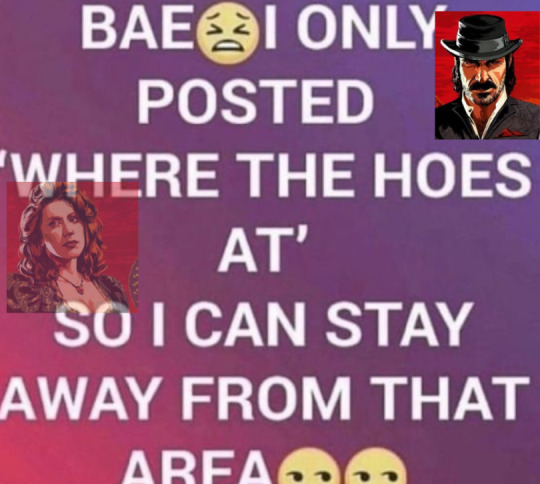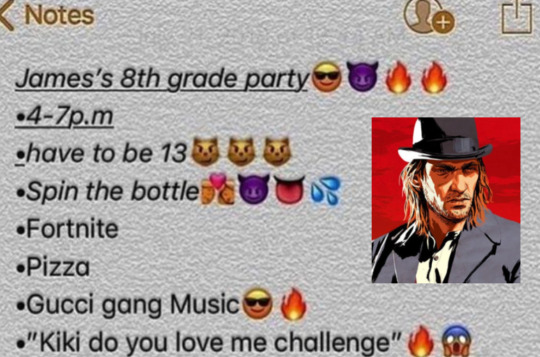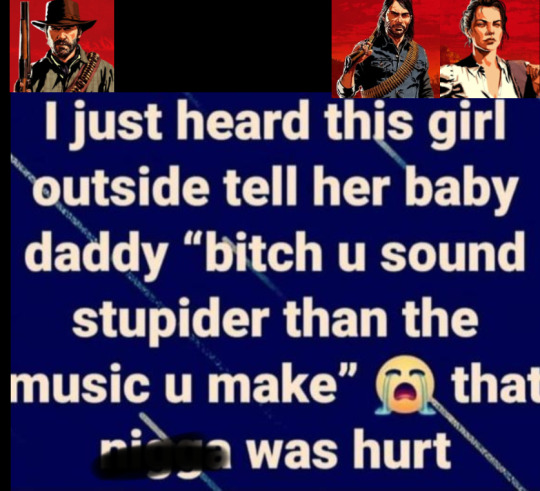#understanding john
Text
My queue was in the middle of 1968 India trip posts during the anniversary of Brian Epstein’s death and the statue unveiling, so it got me thinking about the connection of these two events.
It’s easy to forget the link between the two because they’re technically 6 months apart. But it feels underappreciated how much Brian’s specter looms large over the entire India trip. And not just because they delay the grief process several months in the name of Paul’s favorite coping mechanism. But because Brian dies the week they first meet the Maharishi:
Tuesday, August 22: The band’s first recording session since June; they record takes 1-8 of Your Mother Should Know
Wednesday, August 23: Recording take 9 of Your Mother Should Know and Brian stops by
Thursday, August 24: The Beatles first meet the Maharishi at a lecture in London. At the end of the day, they hold a press conference, get a 90-min private meeting with the Maharishi, and plan to go to Bangor, Wales for a 10-day training in Transcendental Meditation (TM) the next day.
Friday, August 25: They travel to Wales, the first time in years they’re traveling without Brian or Mal or Neil, and it’s chaotic; after they arrive, they get a message from Brian saying he will join them on Monday.
Saturday, August 26: Following a day of training, they renounce drugs in a press conference (well, LSD at least). Brian spur of the moment drives back to London from Kingsley Hill after the guests he invited for the weekend don’t make it.
Sunday, August 27: Brian dies from an overdose of sleeping pills the previous night; he’s found around noon, the Beatles are inducted into TM before the news about Brian reaches them. They had a private meeting with Maharishi about their grief (he talks about reincarnation and the need for positive thoughts about Brian to help this process). Then Paul goes back to London while John and George are forced to make a statement for reporters staked outside.
Monday, August 28: Paul presents the idea for the MMT film and convinces them to keep working rather than go to India now.
That’s one week.
Whether you want to look at it as fate, consequence, or coincidence, TM and Brian’s death are linked forever because of this timing. The simple act of losing Brian factors into the disparate grief reactions and subsequent burnout symptoms seen visibly in each band member after India and across the next year. But this timing would haunt anyone. And not just because those around Brian report him feeling jealous about their diverted attention toward the guru this week. Just dumb what ifs that grief can haunt your brain with: what if they hadn’t heard about the lecture, what if they hadn’t gone on the Bangor trip or had invited Brian to join them on the train, what if they hadn’t appeared on camera announcing they were giving up drugs because of the Maharishi’s influence, etc etc etc.
This link between TM and Brian’s death is especially worth considering for John, who I believe is the only one who ever directly expresses guilt over his death. This isn’t unique as he expressed guilt for all deaths around him in an opaque way believing he’s a curse on people he loves. But it also is understandable because he had some warning. Pete Shotton talks about a worrying tape message John receives from Brian a few days before. Brian’s father died only 6 weeks prior, and Brian’s secretary finds a suicide note dated just before that. There seems to be some uniformity among those closest to him at this time that while he may have been actively considering suicide earlier in the summer, he wouldn’t have after his father passed out of concern for his mother. Still, even with the idea it was all just a terrible accident, those dumb what ifs would creep up in a case like this.
When you add in that Bangor is a spur of the moment trip, that it’s the first one they’ve taken in years without Brian’s planning and guidance, and that telling Brian or inviting him to join them seems like an afterthought? Well, it’s not hard to see how that close link and the guilt that it inspires would have factored into John’s desperation for finding that answer in India. And his anger when it doesn’t deliver. It looks like a desperation to make a consequential choice matter. Searching for the answer to life guided by a holy man makes TM and the Bangor trip meaningful. It makes it important. But to a guilt-filled brain, the idea the man is a fraud means Brian died for nothing. It’s a 60 foot drop into the earth, nothing but a deep dark hole of emptiness.
Now add that John shares with Brian more than just a tendency for depression.
#you can see why janov had a field day with john#from 2022#lol this wasn’t supposed to post oops#queue malfunctioned#my text#august#1967#i started this to get the dates straight and this took on a life of its own#they were too desperate to make eppys death matter#john especially#i guess was my point#brian epstein#john pov#eppy and john#understanding john#1968#what happened in india#fic bunny#i wrote this august 2022 if anyone is curious about what statue i mean#it’s been sitting in my queue for a year as i roll it over in my mind and try to poke holes in it#i wrote it to get into 68 john pov for fic writing#im still not sure about it spec wise but the dates are solid#guilt john expresses is mostly due to introducing brian to pills and may have included spiking drinks unbeknownst in 62 in woolers tbb#but given how far back his im a curse to everyone thing goes its not hard to extrapolate and think his guilt went further#this sets up conflict between paul as john defaults to eppys gone it’s all over and ascribes all their success to him#and paul is intent on proving him wrong while running from his own grief again#george pov is a bit harder to nail down at this time he kinda acts as the polar opposite of paul#his focus on death predates the maharishi and he’s been dissatisfied with the beatles and looking for a way out for some time#he and pattie are the reason they go hear the maharishi as they were interested in meditation already and had done drug renouncing already
64 notes
·
View notes
Note
do you think that john had adhd?
oh hmm, good question! i will try my best to answer it!
first, a disclaimer: i'm not mentally (or professionally) equipped to go full DSM-5 on him at the moment, but here are my observations, based on A) what i know about him as a public figure, B) that degree in psychology i never finished, and C) my own experiences having ADHD/C-PTSD:
so like, vibes alone, i definitely look at him and my gut instinct is "this is not a neurotypical person!" he's got the stink (affectionate) on him, whatever that means. like gaydar but for fellow neurodivergents, yanno?
(side note: all of the beatles ping this for me, and given my own experiences with making close friends and being neurodivergent, i feel like this explains a lot about why the bugs were so tight for so long. see also: george and bob dylan 👁👁)
anyway, back to john! he definitely has some (or a lot) of the dreamy/inattentive/fidgety/impulsive/obsessive/hyperfocused energy and Mood Disregulation™ that can come with ADHD. we've seen him call himself lazy (often a big red arrow pointing toward neurodivergence), as well as struggling to do things he doesn't want to do, which points to executive dysfunction. (describing song writing as "torture" and saying he literally cannot bring himself to play with his son, even though he wants to.)
he's also self-reported serious problems with impulse control (violence, overeating, verbal abuse, risky behavior, drug abuse, etc.) that he later feels shame or regret over. he's got a lot of internalized ego-dystonic behavior that comes with ADHD!
keep in mind, though--a lot of the above can also be attributed to PTSD, C-PTSD or BPD, which are diagnoses that i would be most confident putting money on. BUT, these are often comorbid with neurodivergence, and i'm inclined to argue that neurodivergence makes someone way more predisposed to developing C-PTSD or BPD.
sooo...i dunno! i think he's someone you could easily project ADHD onto, if you were so inclined, with a fair amount of reason to back it up. writing this out has certainly made me think about it more, and it might be something i intentionally include in future characterization.
in closing, i just want to say that i don't think there's any meaningful ethical concern wrt speculating about historical figures' personal lives and playing in the space and writing meta about your blorbos. as long as you aren't doing it AT them, where they'll likely see it, or in a way that might affect their career, i don't see the issue. (and, uh, that's definitely not a problem here lmao.) basically, if you can write fic about them, then you can write meta and armchair diagnose them for funsies 🤷♀️
but yeah! this might be something i actually dive into at some point. i skimmed some interviews for this, and the more i read, the more i'm like "oh...yeah. hmm!"
(spoiler: i probably won't. oops.)
#john lennon#understanding john#home.txt#discussion#will this upset some people? maybe!#is my defensiveness warranted? maybe!#paul definitely has ADHD though i will die on that hill#john definitely has 'i went to the nurse every day for my ritalin' energy#young john seemed like he was always two seconds away from chewing through the drywall from understimulation#good thing he was too busy being a ringleader and enticing other boys to Crimes
18 notes
·
View notes
Text
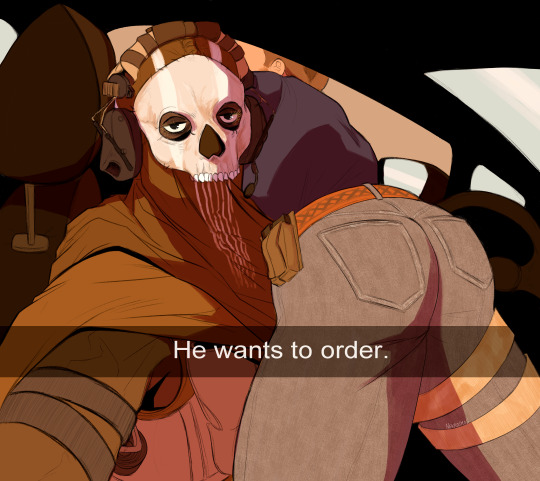
Hope this hasn't been done before 😔✌️
Twitter | Ko-FI
#ghostsoap#goap#ghost soap#simon ghost riley#john soap mactavish#cod#call of duty#I don't recall ever seeing this meme with them and come on it's perfect#I understand that I was very generous with Soap's ass but what can I say#butt fun to draw#also no reason they're in their las almas outfit other than Soap has a nice ass in this outfit so I went with that#my art#mw2
2K notes
·
View notes
Text
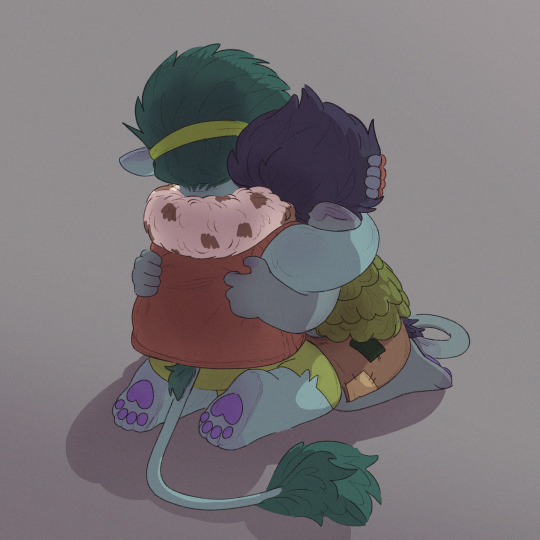
John Dory and Branch
#dreamworks trolls#trolls#trolls branch#trolls john dory#never too big for your biggest bro#I like to imagine that they can find solace in eachother about some things that others might not fully understand/connect with.#like loss or regrets#got some headcanons about these two#nothing too dramtic really lol#this piece is fueled by some overanalyzing and great fics#uh hopefully this isn't too ooc in drama#here's the other piece!#trolls fanart#excuse the messiness#my art <3
1K notes
·
View notes
Text
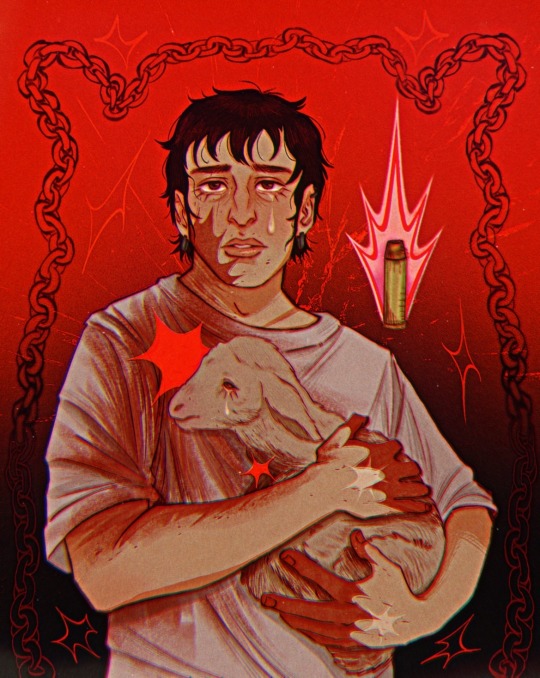
🫀🫀🫀
and he has come to absolve you of your sins, the sacrificial lamb weeps for it knows it’s fate is sealed
#alexa. play pyramid song by radiohead#adam stanheight#adam faulkner stanheight#saw#saw 2004#saw movies#saw franchise#saw fanart#adam stanheight fanart#elijah art#for the love of god. please click for better quality!!#something something the biblical symbolism behind saw 2004#adam rising from the tub / baptism symbolism#adam needing to die so Lawrence can be ‘saved’#so Lawrence can fully understand the gravity of death and what his patients are feeling when he tells them they are terminal#adam saving Lawrence and still having to die#John playing god#his name is fucking adam dude#it all starts with adam#fuck man#I MIGHT be insane.#it’s the ex-catholic in me
2K notes
·
View notes
Text
soap who regularly brings ghost tea just because he can walking into his room and only blinking once when he finds ghost maskless
ghost takes the mug with a gentle “thanks johnny” like always. unlike always, soap unthinkingly responds, “thank you, gorgeous.”
a stunning pink nips the apples of ghost’s cheeks and he huffs, shoving soap away with a muttered “piss off, i’m working.” he does, always does, but the thought of that flush, rising to the very tips of ghost’s ears haunts him (the irony is not lost on him). he realizes he’d do anything to see it again.
the names become a part of the routine, nearly as important as the tea itself.
“thanks, johnny.” ghost will say. “no problem, sweetheart” “anytime, darling” “my pleasure, beautiful” soap will return.
its on one of these days that karma decides to strike him down. ghost has just taken the still steaming mug from his fingers, cradling it. soap prepares himself for the usual, an easygoing smile on his lips and his heart beating ever so slightly faster in his chest. the usual doesn’t come.
“thank you, love.” ghost murmurs, voice rumbling in the small room and casting an avalanche of emotion over soap’s steadily heating frame.
love? LOVE?? that wasn’t part of this, ghost was supposed to be the one fighting down nauseous butterflies not soap. that rat bastard, soap thinks, stupefied, he thinks he can outplay me? i’ll fucking show him.
he takes two confident strides forward, places a steadying hand on the back of ghost’s chair and the other on a stubble laden cheek, and leans down to press a chaste kiss to the corner of his mouth. ghost goes rigid, soap can feel the blush against his nose.
“always, simon.”
when ghost pulls him in for a real kiss, messy and hurried but full of longing and want, soap only thinks he could get used to the taste of tea if it was off the man’s lips
#do you see the vision?? do you understand the perspective???#call of duty#cod#cod mw2#john soap mactavish#john mactavish#soap mactavish#simon ghost riley#simon riley#soapghost#ghostsoap#soap x ghost#ghost x soap#ghoap#did i just post? yeah. am i doing it again? you bet your ass i am
4K notes
·
View notes
Text

Unreal Unearth is out and I’m very normal about it (lying)
#i have ascended#andrew john hozier byrne is everything to me you wouldn’t understand#hozier#unreal unearth#de selby part 1
3K notes
·
View notes
Text
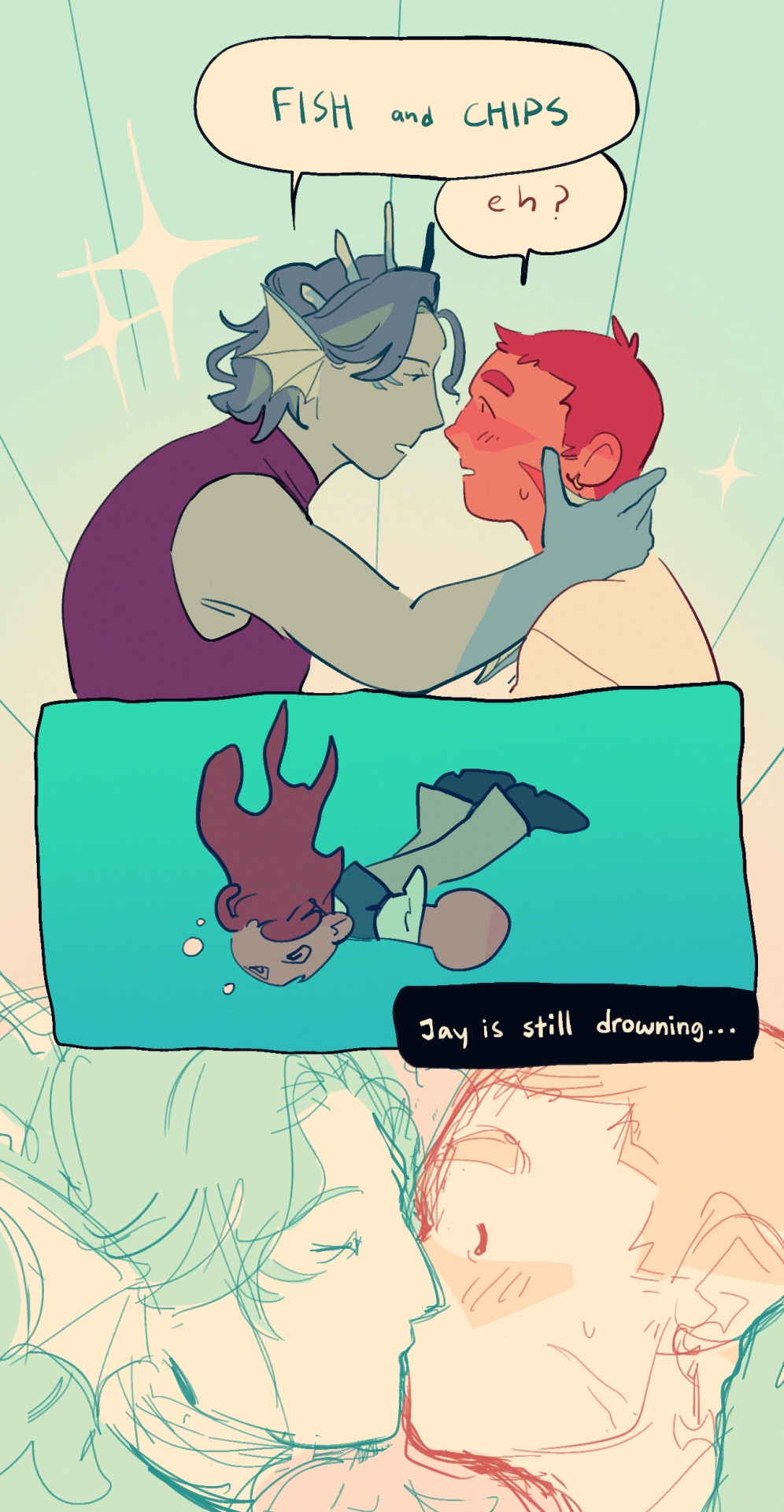
"this is regrettably the best kiss of your life, you understand?"
#that “you understand?” kills me everytime...#i love how high condis voice got during this bit its so fkn funny DHASHGFSFGHASFhg#hi yes have the inevitable ep21 crit kiss piece except i watched ep53 today and am so 😀 im so 😀 damn i m so 😀#i love eps where they just go through so many different gimmick rooms its so fun its so fun when its not so painful 😀#happy valentines too ig#just roll with it#jrwi riptide#gillion tidestrider#jrwi chip#jay ferin#jrwi fish and chips#my art#i had a bit of a meltdown over gill through uhm... 1-3am today and i just hm#sorry to everyone in the mayors QAC uhm im not really sorry but like sorry if you could hear every msg ping uhm yeah#it was like hours of me sobbing to myself in the interests channel and it was really good for my mental health ngl like its really therapeu#-tic to just scream abt a blorbo all night#and i ended up dreaming abt infodumping to one of my brothers friends of all ppl n i got so intense abt how much i love marshall john n my#brother came into the room and dragged his friend out 😭😭😭 i just wanted to ramble abt the himbo pls.....#my walls of tags are so consistent... only consistent thing abt this fkn blog smh.
1K notes
·
View notes
Text
The 141 have a ridiculous run of inside jokes that is continuosly ruining their lives, such as;
1.) If someone says, "You love it really," to you, you immediately have to agree with them, no matter what the circumstances. Otherwise, you lose the ability to do it back. This has resulted in many weird fake confessions, including one time in which Soap got fed up with people making your mom jokes at him and went on a rant about it. Ghost glanced at him in front of a room full of cadets and just went, "You love it really, though," and Soap almost died as he sadly nodded and replied, "Yeah, I do."
2.) If something even remotely sexual sounding is said about you, you must always say, "You're damn right I do/am/will," back. This backfired once when they were in a defreif and Price said something about Gaz "coming through the back door" and Gaz, without think, winked and replied "You're damn right I did," In front of everyone and got in trouble for mild insubordination. (The others almost died laughing as he realised what he'd done, who he'd done it to, and who he'd done it in front of (aka Price's bosses))
3.) When talking about Roach, they will always act like he's died. He hasn't, but none of them can stop the joke, and it always makes all of them crack up, even Roach. This once caused major panic, as once when Ghost was discussing their latest mission with Laswell, he said, "It was fine because Roach - God rest his soul -" and Laswell had about two minutes where she thinks Roach has dropped dead and she didn't fucking know.
4.) They will always make up bad stories for how they met Ghost, if anyone ever asks. It doesn't matter what the truth is, or who they're speaking to, when asked, all three of them will reply with some made up, overly dramatic or down right boring story on how they met. These stories ranged from Ghost, saving them from a shark attack (Gaz), Ghost selling them assorted drugs as a teenager (Roach), and most devastatingly is when Soap told a distant relative of his that he met Ghost after "finding him with my older brother, behind his wifes back" he does not have an older brother, and so there is no wife.
5.) They always reference the "Malibu incident." None of them have ever been to Malibu. Nothing bad has ever happened there, but now they've created a whole conspiracy in the British Army about a coverup that happened in Malibu. Price knows about this one and finds it endlessly funny, so he goes along with it, never directly mentioning it but refusing to deny it when someone asks. If anyone ever asks about the details of it, they just give a deadpanned look as if the other person should already know and say; "Don't make me say it." There are rumours. Like, a lot of rumours.
6.) Roach claps every time someone says, "I'll be there for you" because once he clapped at the wrong time during the friends intro and had been paying the price ever since. It doesn't happen often, but sometimes you'll just hear him clapping - not even in the tune to the friends theme. Just random clapping. If any of the others hear it, they almost always reply with "That's a fuckin' joke" in a really disappointed tone. It's confused a lot of people.
#call of duty#cod mw2#john soap mactavish#simon ghost riley#kyle gaz garrick#gary roach sanderson#john price#kate laswell#they spend far too much time together#so their humour has kind of melded together to make their own goddamn language that nobody else ever understands#and they can't explain it either#because it always takes too long and by the time theyre done its not even funny#so they just look crazy to everyone#price knows about most of these but absolutely refuses to take part in them#except for malibu#because he actually finds that one funny#task force 141#cod 141#shit talker talks
1K notes
·
View notes
Text
The Case of Thelma Pickles

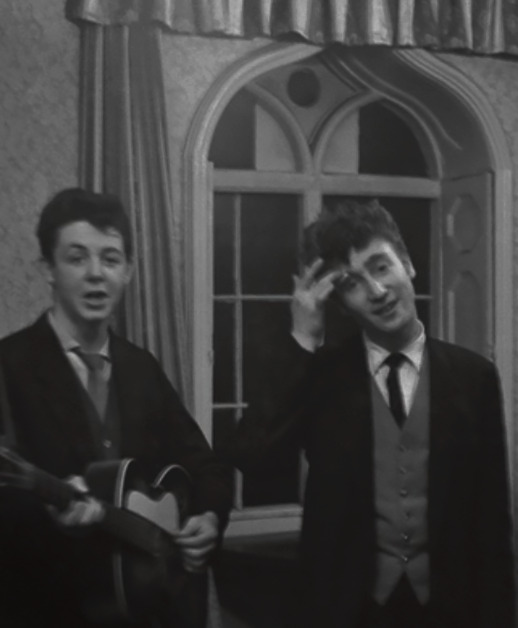
Thelma's account of John is most often cherrypicked by detractors as evidence he was some lifelong wifebeater. While the violence in the incident she describes is clear, the nuance that makes her account so vivid gets lost in the debate.
I keep coming back to her account for her picture of John at a crucial time, only a few months after Julia is killed.
John’s girlfriend in the autumn of 1958 was Thelma Pickles, a new and interesting student at the art school, just turning 17. Initially, she thought him “a smartarse,” then changed her mind when she witnessed his reaction to a girl who asked if what she’d heard about his mother was true. “She said, ‘Hey John, I hear your mother’s dead.’ He didn’t flinch. He simply said, ‘Yeah.’ She carried on, ‘It was a policeman that knocked her down, wasn’t it?’ Again he didn’t react, he just said, ‘That’s right, yeah.’ I was stunned by his detachment, and impressed that he was brave enough not to break down or show any emotion. Of course, it was all a front.”30
Soon afterward, John and Thelma sat talking at the Queen Victoria Monument and each revealed being deserted by their dads. “He pissed off and left me when I was a baby,” John said of Alf, which was far from correct but no doubt how he felt. Thelma’s father had left home when she was ten; she was sensitive to the stigma of having only one parent and emotional when anyone mentioned it. “I couldn’t sustain the detachment John managed,” she says. “I thought it was quite an achievement to be able to behave like that.”
Suddenly, John and Thel, as he called her, were “going out.” The shared soul-baring cemented it, and also they fancied each other. Thelma was the first female John allowed to get close after Julia’s terrible death. She was given glimpses of his other side.
When we discussed it between ourselves I realized he was clearly more sensitive than he appeared. He spoke of the pure shock of losing his mother, and he said what a loss it was (though I don’t think he used the word “loss”). At such times, he spoke in a much softer, more explanatory way than usual, and though he never demonstrated extremes of emotion, his pain was clear. The other side of the coin was that he’d detect any minor frailty in somebody with a laser-like homing device. I thought he was hilarious, but it wasn’t funny to the recipients.31
Thelma was witness to a rare occasion at Mendips, when John, Paul and George all stood in the kitchen and played their guitars. Mimi was out, and before she was expected back Thelma and the two lads scarpered. John knew Mimi didn’t want them in the house and would raise merry hell about it, and he just didn’t need the headache. For a while, though, John and Thel took regular advantage of Mimi’s going out (it seems she went to play bridge one night a week). The plan, carefully formulated by John, was for Thel (who lived in Knotty Ash) to take the bus to Woolton; she and John would meet and sit across Menlove Avenue in a shelter on the edge of the golf course, and when Mimi left and walked down the street, over they’d go. “I only ever saw Mimi from a distance, in the dark,” Thelma says.
Mostly, Thel found John “enormous fun to be with, always witty, and when we were alone together he was really soft, thoughtful and generous-spirited.” He made them tea and toast, he made her laugh, and he made love to her in his little bedroom above the porch. “We didn’t call it sex—that word wasn’t really used by people then. John called it ‘going for a five-mile run,’ because he’d read or heard this was the amount of energy a man spent.” They used no protection, trusting only to luck, and John told Thel he was glad she was no “edge of the bed virgin”—his euphemism for the kind of girl who would take him half the way there but no further.
John and Thel often took afternoons off from art school to go to the pictures. He liked the old horror films at the equally old Palais de Luxe on Lime Street, and they also went to see Elvis’s final pre-army film, King Creole, which reached Liverpool Odeon in mid-October 1958. Though John very occasionally wore his glasses at college, he definitely didn’t do so in public, and without them, even sitting near the front of the stalls, he could hardly make out how his idol was faring up there on the big screen. He kept nudging Thelma, nagging her to describe all the action: “What’s he doing now, Thel?”
—Tune In, Ch. 9 (June–Dec 1958)
Her account of the beginning of their relationship supports Paul and Cynthia’s characterization of young John as a kid that put on a public front to mask fear and insecurities and grief. She is surprised by his detachment to loss, something she wishes she could attain. (Echoes of this story of John and Paul. Like recognizes like?) Yet with further scrutiny, she sees the detachment as a facade and discovers a shared trauma, and they bond over opening up about their family losses.
After this recognition, they become close. When alone, Thelma sees the softer side to John, thoughtful and generous. When in public, she notices his awareness of the eyes of others, mocking frailties of others while walking around half-blind himself. She finds him hilarious as long as his target is someone else, feeling a sense of specialness by being part of his crew. You can see echoes of John and Paul's mean girls schtick here.
It's notable that by 1959, John has made a habit out of bonding over shared grief/trauma. John meets Paul just after his mother dies, and John lost his father figure a few years before that. John meets Thelma after Julia’s death and they bond over absent fathers. John goes on to meet Cynthia, who has just recently lost her father.
Her account of the end of their relationship supports how John would lash out when power shifted and exposed his insecurities. This lashing out comprises not only one hit in a moment of anger, but several days/weeks(?) of public mocking in response to her ending the relationship over his own actions. Notice how he mocks her with a lie they both know isn’t true all because she wounded his ego? It’s the performance of it all that sticks with me.
And the only way she gets him to shut up is to match him in being equally vicious back. The games of adolescence perhaps, but its echoes in John’s other significant relationships suggest a pattern. Mind games, more than anything, is the weapon of choice.
[Quotes and sources under the cut]
During the course of this, John leaned over to Thel and asked if she fancied “going for a five-mile run.” She agreed, and they slipped upstairs to the Art History room, assuming it would be free. “It was dark but we could tell there were other couples in there, probably having a five-mile run of their own, or trying to,” Thelma recalls. “I told John I was uneasy about doing it in a place like that, especially with other people there, and he wasn’t happy with my attitude. When I insisted on going, and got up to leave, he became rough and whacked me one—his fist connected somewhere between my shoulder and my head, around my neck.”8
During the course of this, John leaned over to Thel and asked if she fancied “going for a five-mile run.” She agreed, and they slipped upstairs to the Art History room, assuming it would be free. “It was dark but we could tell there were other couples in there, probably having a five-mile run of their own, or trying to,” Thelma recalls. “I told John I was uneasy about doing it in a place like that, especially with other people there, and he wasn’t happy with my attitude. When I insisted on going, and got up to leave, he became rough and whacked me one—his fist connected somewhere between my shoulder and my head, around my neck.”8
Thelma stormed off, and decided that was the end of their relationship. She did her best to avoid John through the following week, and when this wasn’t possible she simply ignored him. He started to mock her but she resisted his gibes, and this went on for several days until reaching its culmination in the Cracke. “He was still mocking me, in front of others, and then he called me ‘an edge of the bed virgin.’ That really pissed me off because we both knew it wasn’t true. He was just being sarcastic and wounding because he was pissed off with me, and I got so enraged I shouted back, ‘Don’t blame me just because your mother’s dead!’ It was a cruel remark, but he knew all about those. It just seemed the easiest way to get back at him.”
John and Thelma had reached the end of the line, though they’d remain friends and keep in touch for several years. In an interview in 1980, John reflected on his teenage behavior: “Hitting females is something I’m always ashamed of and still can’t talk about—I’ll have to be a lot older before I can face that in public, about how I treated women as a youngster.”9 Except that he was talking about it, and with the sort of candor customary even when it was to his own detriment. In 1967, John mentioned it within a song lyric and spoke about it to his biographer Hunter Davies. “I was in a blind rage for two years,” he said. “I was either drunk or fighting. There was something the matter with me.”10
This was also, of course, the way it was in many other relationships, and had been for a long time and would be in the future, especially in the north of England. It wasn’t excusable but nor was it unusual, and such attitudes were reinforced constantly in receptive minds by the silver screen. “Not only did we dress like James Dean and walk around like that,” John later remarked, “but we acted out those cinematic charades. The he-man was supposed to smack a girl across the face, make her succumb in tears and then make love. Most of the guys I knew in Liverpool thought that’s how you do it.”11
In terms of dress, John continued to interchange between college scarf and Teddy Boy drape, though being a Ted was always more a state of mind for him.12 The persona remained very much part of his attraction to Paul and George, however—as Paul says, “We looked up to him as a sort of violent Teddy Boy, which was attractive at the time. He got drunk a lot and once he kicked the telephone-box in … [and] what might have been construed as good old-fashioned rudeness I always had to put down to ballsiness.”
—Tune In (Ch. 10, Jan–July 1959)
Based on the accounts of Thelma here and Cynthia elsewhere, both known incidents of John being physically violent with women are single, isolated events. Thelma describes a hair pull and full-on hit (punch) in the neck, which is physically painful to think about, whereas Cynthia describes a slap in the face. In both cases, they feel confident enough to shut it down and walk away, Thelma for good and Cynthia at least making him grovel first (Christmas 1959 card). Domestic violence comes in several forms, some of which do match John’s behavior with Cynthia even if they were common for the time (controlling appearance and activities, possessiveness and paranoia of infidelities, etc.), but neither of these women describe habitual physical violence.
However, this incident does not seem to reflect the guilt with which John talks about it later. Even when put together with Cynthia’s account, which is less than a year later (fall 1959), the level doesn’t seem to match. I notice both incidents would be within the two years after Julia’s death, yet he’s writing about it in 1967 (“I hit my woman”) and still talking about it in 1980. Even 3 months before his death, he was calling himself "a hitter." Either there were more incidents left untold (e.g., Thelma and/or Cynthia are condensing into one where they left, or other women who’ve remained silent) or John’s guilt spun it into more over time. This is notable because there’s not much else he ever seems to publicly regret.
Looking up Lewisohn’s sources, the worst quote from John is actually from Source 11 (the James Dean quote above), a print interview from a dubious author (link in the sources listed below). The author Sandra Shevey has claimed to have spent at least 12 hours interviewing John and Yoko, and while at least one recording of her interview with them is available, I’m skeptical about other quotes in print considering her output. Reading a few pages of her book on John, some parts are so unhinged I wondered why on earth Lewisohn even used anything from her as a source (serious burn book vibes). John has mentioned elsewhere about being influenced by Hollywood’s images of (toxic) masculinity as a teen, but her full quote makes it sound like he was basically raping women all the time. She uses the quote as a springboard to her more outlandish theories (like devoting several pages to the idea that John raped and then murdered Brian over a contract detail?!).
Burn book moments aside, Shevey also gets tons of basic details completely wrong like attributing Get Back’s writing or Bernard Webb’s Woman to John (both are Paul’s) and in general treats Paul as a nonentity in John’s life and work. So I have a hard time trusting anything from her book. However, she is one of the few John bio authors to consider bisexuality (unhinged theories aside) and is questioning the ballad of John&YokoTM in print as early as 1990, perhaps because she spoke with them during a time when the cracks were more visible. So assuming her quotes are accurate and her reading is just wildly off the mark, I think it’s worth mentioning the context of this James Dean quote in her book. It's prefaced with background that may shed light on the case of Thelma Pickles, who had the dubious honor of being John’s first real girlfriend.
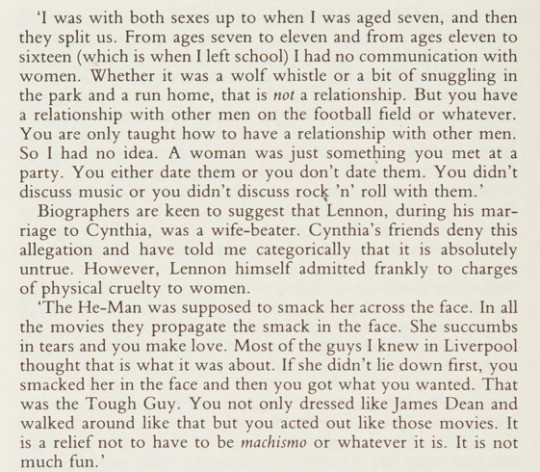
Talking in 1972, he's speaking about this in relation to his struggle with accepting Yoko as an equal creative partner on the latest album. There’s a flavor of blaming British society and American culture that sounds very Yoko shaped (he goes on to call British men both effeminate and sadist). However, applying this background to 1958, you can see how a young John would have struggled to apply his relationships with other boys to his first attempt at a relationship with a girl, especially one who was by her own account looking for recognition and belonging with the boys.
Aside from the physical violence, Thelma’s account details the headtrip of John’s verbal violence. When you’re 16, a week of public mockery can feel like a lifetime. Doubly so when it comes from someone you were once close to. Like Pete and Paul, Thelma figures out how to match John’s level and shut him up. Bill Harry also recalls the importance of standing up to John to gain his respect. Thelma has to deal with him like one of the guys, delivering a verbal uppercut that leaves him clocked out and in the sand.
In a way, John’s mockery of Thelma looks like a mirror of the much longer, much more public mockery Paul gets from John 1970-1972. Ram aside, Paul waits to turn the public equivalent on John until 1972—which just so happens to be when John starts to cool his fire toward Paul. Shevey claims to interview John a day in September 1972 and the only recording she’s released is John ruminating about working as a partner with Yoko vs male artists (“It’s a plus, not a minus. The plus is that your best friend, also, can hold you without…I mean, I’m not a homosexual, or we could have had a homosexual relationship, maybe that would have solved it”) and the continued struggle of making this transition. Assuming Paul knew more about John after 13 years than Thelma did in 6 months, I’m left wondering why did Paul wait so long in the 70s? Maybe it’s harder to kick back when you’re feeling down? Or guilty? Maybe smarting from result of the last attempt? Maybe it’s harder to kick back when there’s a mountain more of feelings between you.
After Thelma gives him a taste of his own medicine, they continue to be on speaking terms though the closeness they had was gone. She recalls loaning him art college assignments because he’s in danger of flunking out. John goes on to date Cynthia, and Thelma remembers thinking he’d fancied her given his taunts but sounds a bit dismayed by how he got her to change her entire identity for him (“He got what he wanted”). She recognizes being married to John would be a “gargantuan task” and had no regrets herself.
Lastly, a comment on Lewisohn’s framing here. I think it’s appropriate to mention John’s guilt and the effect of pop culture on the social mores of the time here. But I find it incredibly distasteful that Lewisohn concludes this incident with a quote that suggests Paul liked John violent and hitting women, considering the actual context of the quote.
Here's Paul's words in Many Years From Now that Lewisohn quotes from:
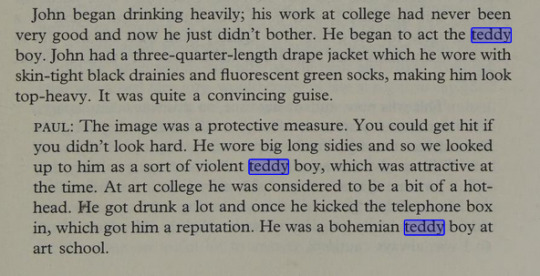
The first sentence of Paul's words on this says it all. This quote is all about the image of the Teddy Boy as a protective measure. Conflating violence against women with fashion is not helpful at all.
This word-twisting feels especially terrible because Paul ends up dating Thelma himself a few years down the line...
All the Beatles were now in settled relationships. Having ended with Dorothy Rhone, Paul played a broad field without hindrance, sparking flames old and new, and he also (from August 1962) found himself a special new “steady.” This was Thelma Pickles—John’s art school lover before he got together with Cynthia. Paul had always liked Thelma, and happened to see her in Liverpool while driving his car—his proud and precious Ford Consul Classic, which he bought new (“on the never-never”) in early August.16 She married, had a baby boy and then separated from her husband. Approaching 21, Thelma lived in a Prince’s Avenue bedsit as a single parent and was trying to resume her art school studies, a talented young woman … and here in her life arrived Paul McCartney.
He was no longer a slightly plump young schoolboy but very much his own person. I only like visual art, I’m not into music, so I had just a vague notion that John and his group were still going. Paul said he’d pick me up later to see them play at the Cavern. It was a jazz club when I’d last been there. It was full of raw energy. Girls were screaming and boys liked them as well. I’d only ever watched Six-Five Special and this was different. I hadn’t believed what Paul said about their increasing fame—being brought up working-class in that era, we were given to believe “our sort” couldn’t become successful.17
—Tune In (Ch. 31, Aug 19–Oct 4 1962)
Her comment on class and success is important to put in context with the rest of her account. Given John's more middle class standing living with Mimi at the time, I’m sure Thelma felt the power differential between them at least the first time she visited Mendips. Notice how sneaky John is to make sure Mimi doesn’t meet her? It mirrors how John only has the band over when Mimi's out of the house; he knows how she will react to him seeing a working-class girl and doesn’t want the trouble. That sticks with a girl, feeling like you’re not worth the trouble. He does end up introducing the much more prim and proper Cynthia to Mimi, and it still goes terribly, but at least he tries, signaling to Cynthia he sees some future with her. That hit in the neck? Sounds a lot more gruesome than a slap in the face. And it's in public, after she turns him down. Despite their shared closeness alone, the power differential in public still reigns supreme. But she knew her limits and stood firm in spite of it all. We only have one picture of her at this time, but it’s a telling one all the same. I look at it and can’t help thinking, oh, I know this girl. Good for her.
Even after Thelma and Paul’s relationship fizzles, they stay friends through other connections. She ends up dating (and later marrying) Mike’s bandmate, Roger McGough. She recalls staying with Roger at Cavendish in the 60s. It’s not clear if she crosses paths with John at this time. Perhaps her presence prompted the guilt we see John express in 67 in Getting Better and interviews with Hunter Davies. I hope she haunted him…even just a bit.
Sources by Chapter
Chapter 9
30 Observer, December 13, 2009.
31 Author interview, September 6, 2010.
Chapter 10
9 Interview by David Sheff, September 24, 1980, for Playboy.
10 Davies, pp56–7. The song lyric: “I used to be cruel to my woman / I beat her and kept her apart from the things that she loved”—“Getting Better,” 1967.
11 Interview with Sandra Shevey, the Hartford Courant, November 26, 1972.
12 “The Teddy Boy … that was my scene, but it was only a club to belong to at the time”—interview by David Skan, Record Mirror, October 11, 1969.
13 Many Years From Now, pp49/33.
Chapter 31
16 Author interview, May 2, 1991.
17 Author interview, September 6, 2010, and e-mails August 29, 2010, and February 28, 2012.
#thelma pickles#the only girl on record that was with both john and paul#poor girl#beatle girlfriends#understanding john#teddy or not#my text#reading tune in#her account touches on several bits i keep coming back to#i think the most telling parts about thelma’s story are the trauma bonds that start the relationship#and the lies he spouts at the end after she wounds his ego#okay and 50s schools really failed kids by not giving them medically accurate sex ed#the pill is two years away from release at this point but even then youd need disposal income for it#five mile run euphemism fits in well with his skywriting euphemisms#wordplay#clearly john had an exhibitionist kink#no one ever told teen john your kink isnt your partners kink and thats ok#class and the beatles#long post#women and the beatles#grief#mothers and sons#mark lewisohn#sandra shevey#you know what sends me into a blind rage men calling women ‘females’ at least johns comment is 40 years old what’s marks excuse#more about shevey later bc seriously wtf
24 notes
·
View notes
Text
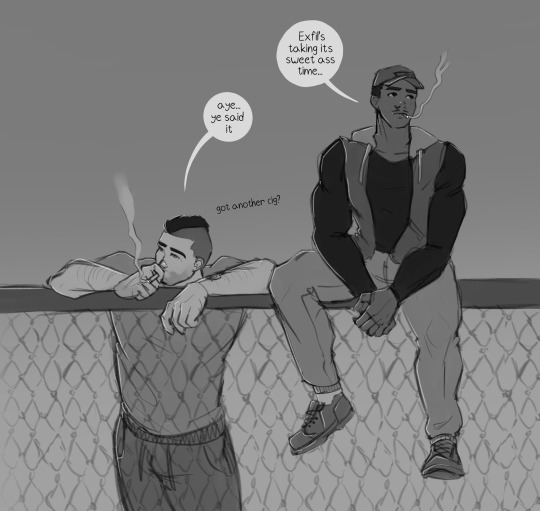
Bored out of their minds waiting for the helo
#call of duty modern warfare 2#cod mw2#cod soap#cod gaz#john soap mactavish#kyle gaz garrick#cod fanart#I. do not understand forearm muscles. please help.#also I haven't drawn Gaz in so long <3 I love how he turned out#I make him wear this sleeveless hoodie a lot... idk it just feels like something he would wear#these are really fun to do and they only take like and hour maybe 90 mins#i feel like i can focus more on anatomy when its not a whole comic
1K notes
·
View notes
Text
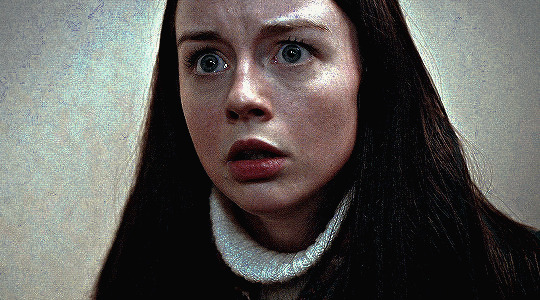
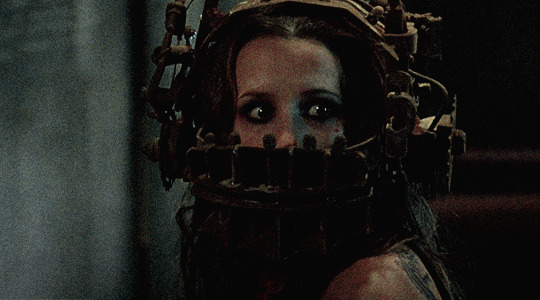
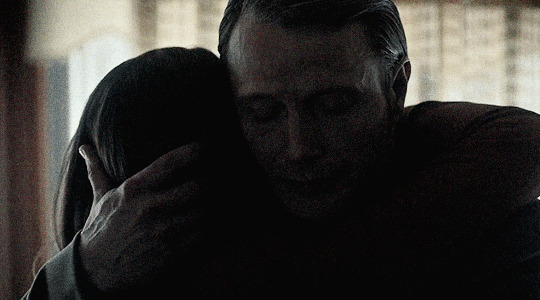
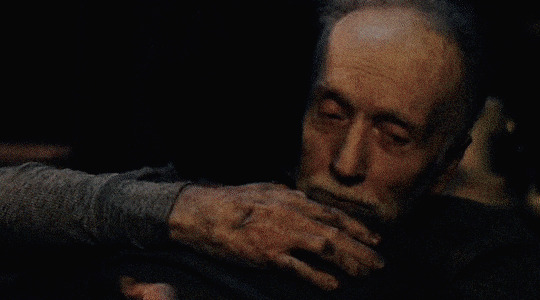
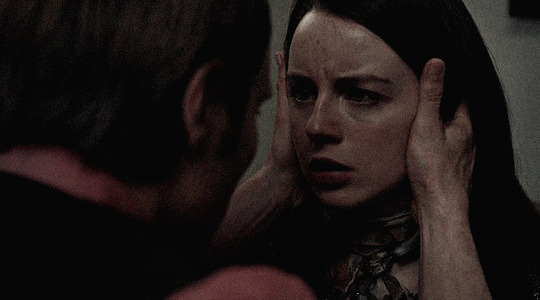
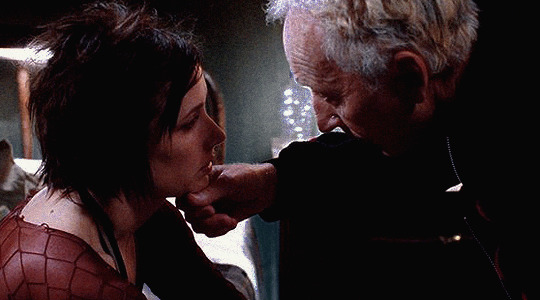
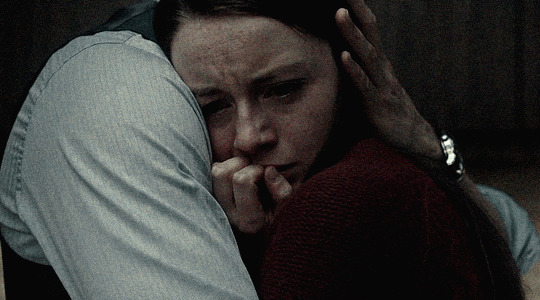
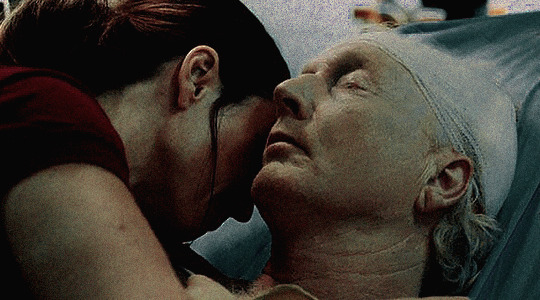
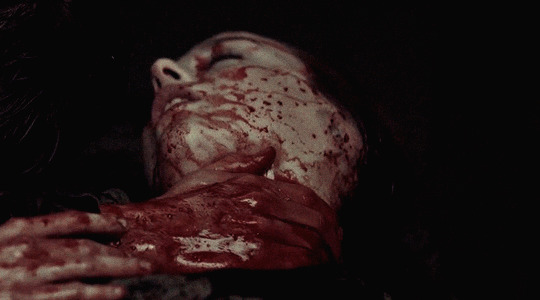


* ABIGAIL HOBBS (HANNIBAL) / AMANDA YOUNG (SAW)
#saw#hannibal#saw x#hannibal nbc#abigail hobbs#amanda young#hannibal lecter#john kramer#jigsaw#is this niche enough. do u guys understand what i'm going thru#it's about the lesbian with the complex feelings towards her father figure who also happens to be a murderer
2K notes
·
View notes
Text
Poppy screaming crying throwing up cuz her bf was so cute having perm when he was a baby 😂
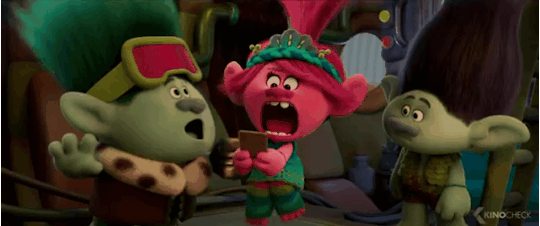
#i understand you Poppy he's adorable#trolls band together#broppy#trolls branch#trolls poppy#branch#poppy#john dory#trolls john dory#trolls 3#my gif
2K notes
·
View notes
Text
[angst, panic attacks, implied MCD]
disclaimer: methods of overcoming panic attacks are based on my own experience and not from licensed professional medical people
Do it for him



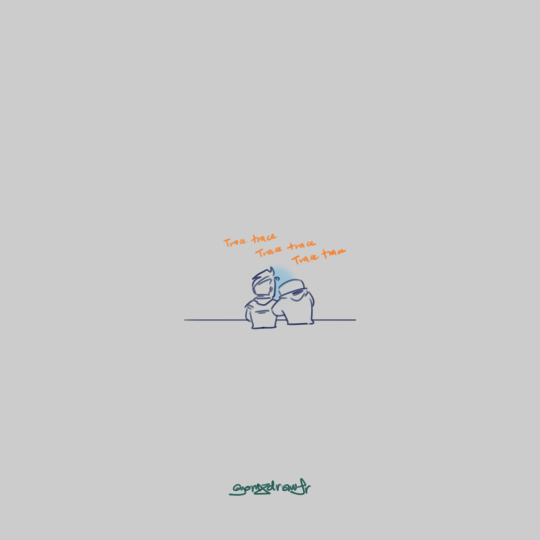
━━━━━━❆━━━━━━━
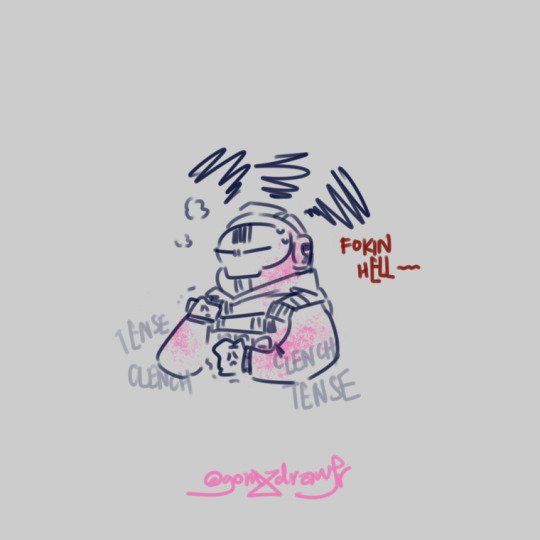
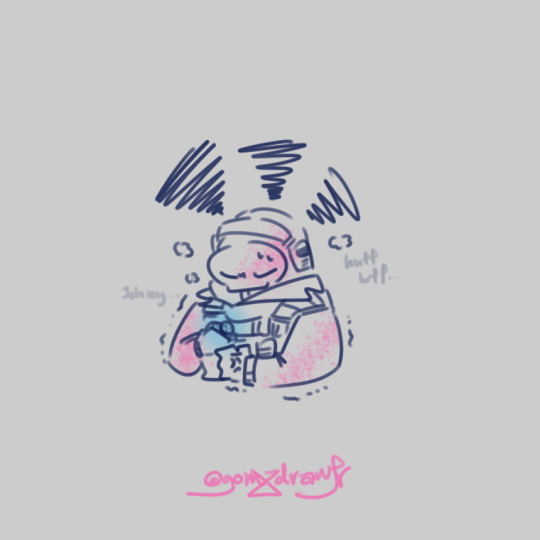
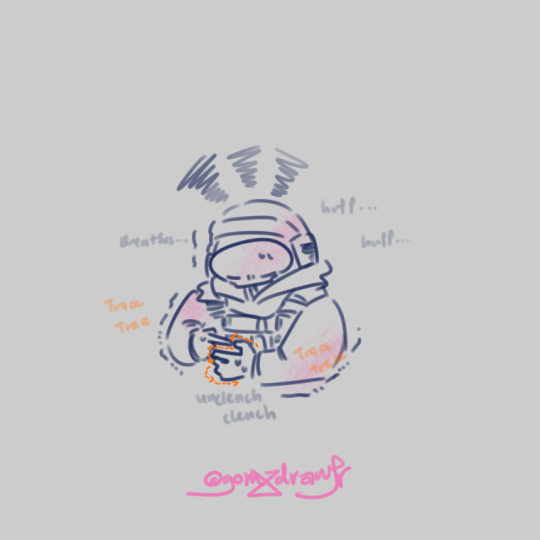

#things you used to do for me#if it's hard to understand from my doodle#u basically trace the shape of all your fingers starting from the base of the thumb and then retrace it back#helps to ground a person back by reconnecting yourself to the sensation of your skin and refocusing your gaze onto your fingers#+repetitive motion often can be calming#works well with overwhelmed kids too#no those are not sparkles btw#danganronpa ref heh#gummmyart#doodle#simon ghost riley#john soap mactavish#soapghost#ghostsoap#angst#wELP guess who's back on the angst train#choo choo
493 notes
·
View notes
Text
when a lovely flame dies, smoke gets in your eyes
OR: what were we supposed to take away from episode 3 if not ‘bucky is a war widow’
#masters of the air#motaedit#hbowaredit#bucky egan#john egan#clegan#like it's genuinely a 1:1 parallel and i'm NOT supposed to read bucky in ep4 as a grieving widow???#this kind of also turned into a rumination on how willfully optimistic bucky is that they'll both make it through the war#(he has no other choice. his heart couldn't take another—)#hence the titular smoke getting in his eyes. you understand#he's blinded by love and then by rage. and i adore him#this ended up being more of a video essay than an amv so i hope people enjoy it!!#i had a really good time making it and i'm really proud :')#particularly the sequence of him seeing the bomb in london -> seeing the bomb in germany -> the sunset in algiers#also clearly continuing my mission of making mota amvs to big band / jazz :)))#ANYWAY.#kbsd.amv
509 notes
·
View notes


